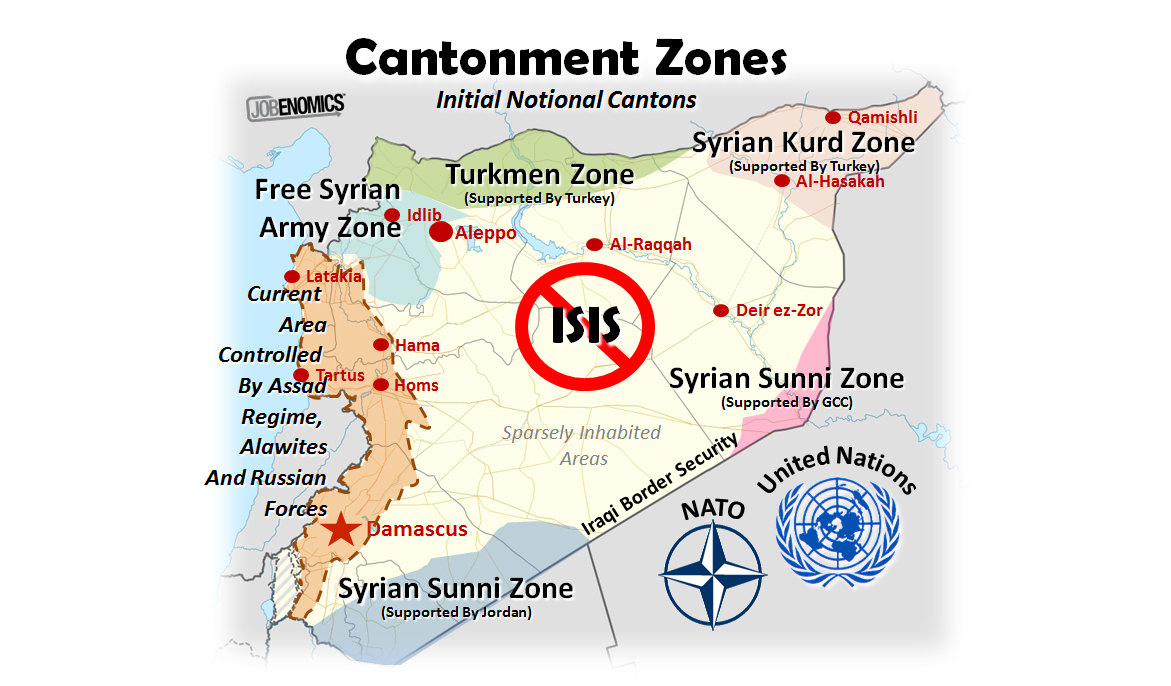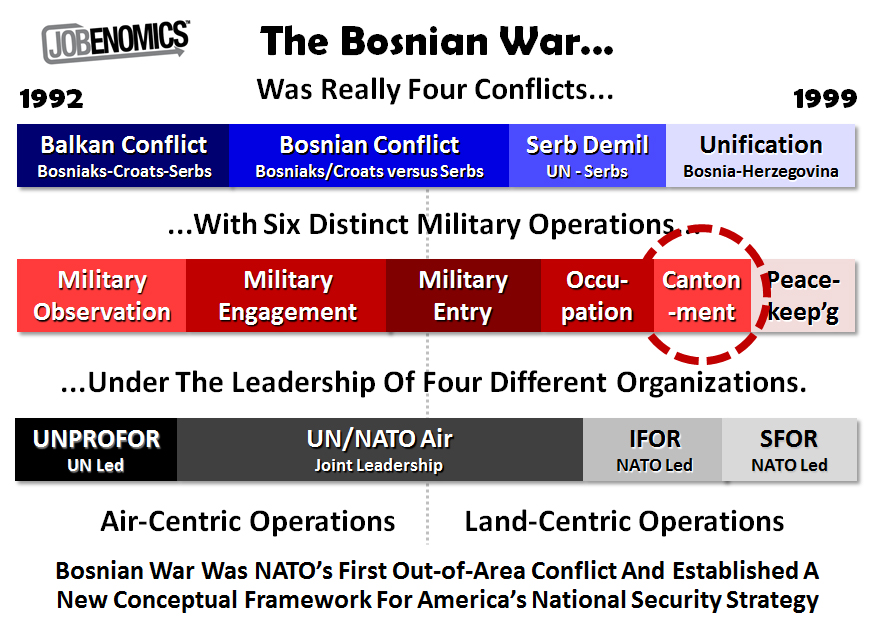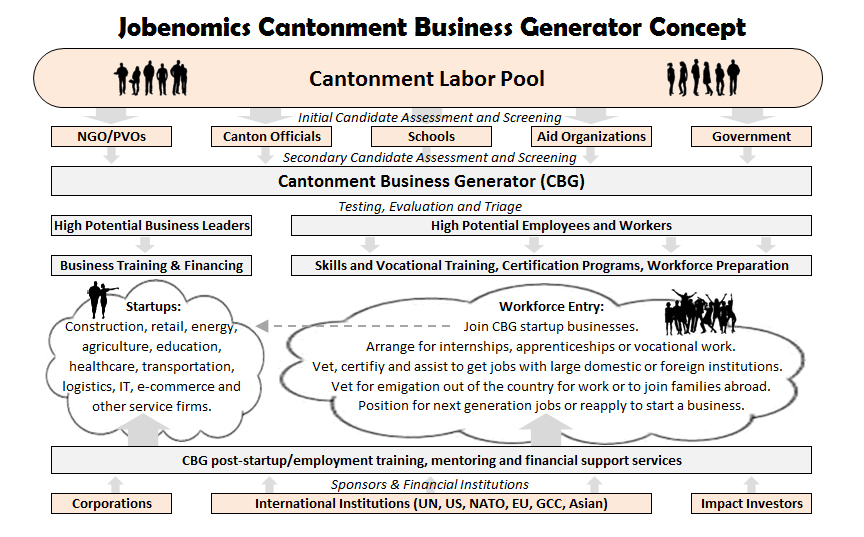Jobenomics Counterterrorism Strategy
By: Chuck Vollmer
27 Dec 2015
Download a copy of this 75 page presentation: Islam, Ummah, Islamists and Irhabi 27 December 2015, at Islam, Ummah, Islamists and Irhabi 27 December 2015

While Jobenomics is an American business and job creation initiative, it has gained a large following around the world. MidEast countries are interested in Jobenomics from both a wealth creation perspective and response to economic discontent voiced by the Arab Spring. Jobenomics Counterterrorism Strategy includes a balance of cultural, diplomatic and military engagement. Cultural engagement has been the missing element of Western statecraft in dealing with the Ummah, Islamism and Muslim-led terrorism. The following sections of this presentation are offered to provide a more comprehensive understanding of the key elements of cultural engagement: (1) Islam: The Religion, (2) Ummah: The Worldwide Muslim Community, (3) Islamism: The Political Ideology, and (4) Irhabi: The Terrorists.
Today, the U.S. State Department has a list of 157 terrorist groups. 47 groups are Muslim-led (80%) and 12 non-Muslim-led (29%). The vast amount of Muslim terrorist groups are by Sunni ersatz (artificial substitute) armies to fill the security void for helpless and impoverished Sunnis subjected to oppressive regimes and encirclement by hostile Shia forces. To defeat the Sunni-led terrorists, the West must rely to a much greater extent on the leading and resource rich Sunni-majority nations of the Gulf Cooperation Council, which heretofore have taken minimalist roles in out-of-area counterterrorism operations.
From the dreadful day in September 2001 to 2010, Muslim-led terrorist groups averaged 11.7 attacks per year. From 2010 through 2013, attacks increased to 17 attacks per year. 2014 registered 35 attacks. 2015 is the worst year ever with an incredible 106 terrorist attacks across the entire planet. From 9/11 to 2010, 36% of all attacks were against Israel. From 2010 through 2015, 97% of all attacks were outside of Israel with the majority (77%) on Muslim civilians in Africa, Iraq, Syria, Yemen, Afghanistan and Pakistan. As evidenced recent events in Boston, Paris and San Bernardino, terrorists are moving West. Even if ISIS is eliminated, these attacks are likely to continue to metastasize until leading Muslim nations take a greater role in eradicating irhabi from the Ummah.
The cultural/religious/economic/political center of the Ummah resides in the Arab Gulf region’s six GCC countries that are primarily focused on self-defense. If the GCC remains inwardly focused, Sunni militant groups will continue to proliferate and the Shia Crescent will continue to expand and envelop the region. The ideal starting point for out-of-area GCC operations is in Syria to contain ISIS, help displaced citizens rebuild their lives, and reverse the flow refugees that are overwhelming neighboring countries and putting the entire region at risk.
It incumbent for the West to engage the GCC nations as equal partners in counterterrorism. However, this is a global challenge. Institutions, like the United Nations, should build a coalition between leading Muslim-majority nations and the international community to eliminate the plague of terrorism before it destabilizes the world.



